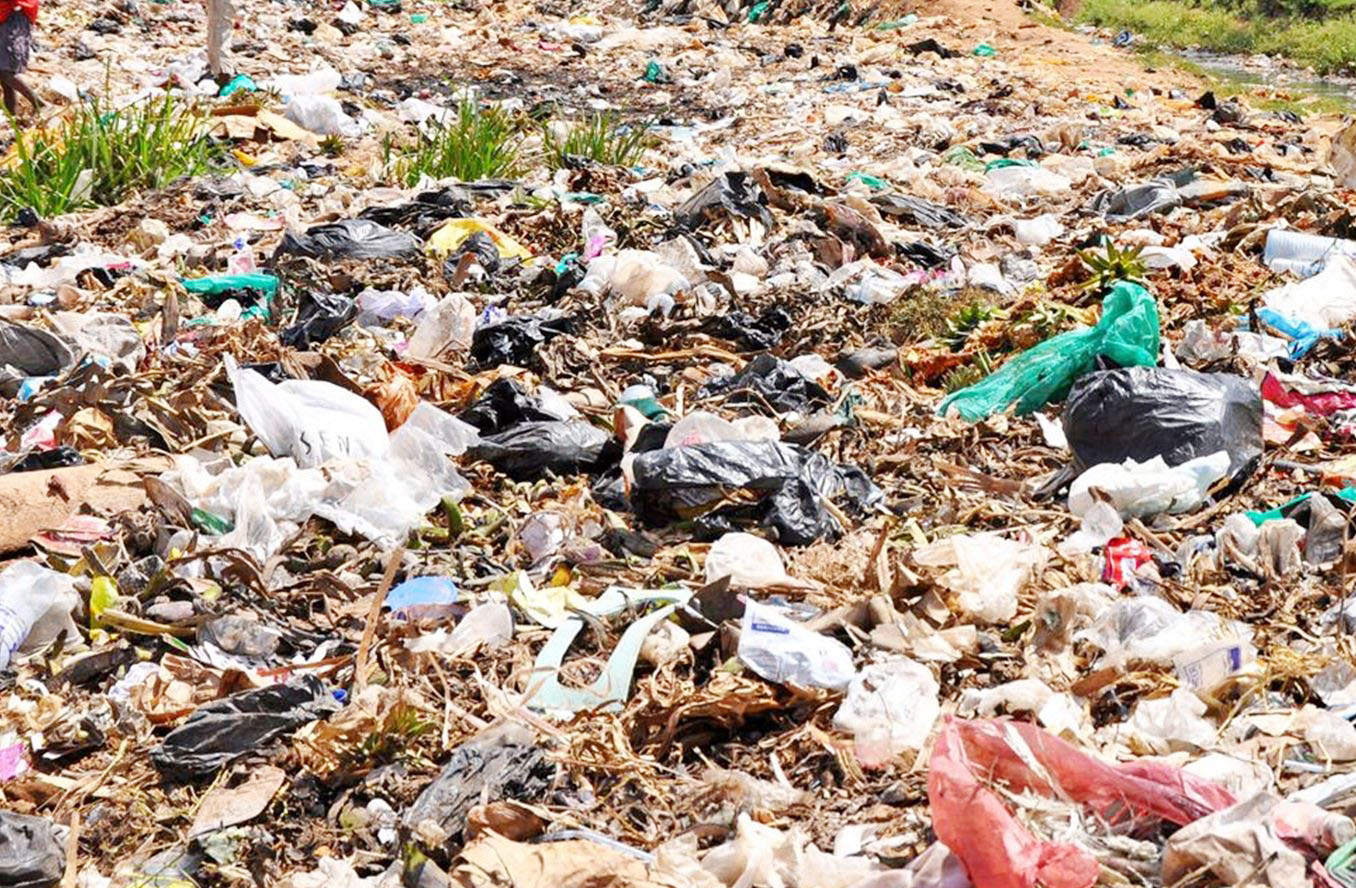Insalubrity in the streets: incivism and carelessness on the part of citizens
- Posted on 02/06/2023 14:21
- Film
- By abelozih@sante-education.tg

Extract from the article: Inadequate sanitation and poor hygiene habits are rife in certain areas of Lomé. This situation is becoming increasingly worrying, as it compromises the health of the population. A team from Santé-Education took a tour of some of the city's neighborh
Inadequate
sanitation and poor hygiene habits are rife in certain areas of Lomé. This
situation is becoming increasingly worrying, as it compromises the health of
the population. A team from Santé-Education took a tour of some of the city's
neighborhoods, and the results were stark. Unauthorized dumps, gutters littered
with bags, dishwater in front of houses, sump water in the streets, urinating
on sidewalks. Irresponsibility, incivism
or carelessness on the part of citizens?
In
Togo, section 2 of the Health Code, entitled « Sanitation of built-up
areas », sets out measures for the management of wastewater and household
and industrial waste. Article 55 reads: « In towns where a separate
sewerage system is adopted, two different sewers may be required. Water and
waste must be disposed of in such a way as not to cause a nuisance ». This means that household wastewater must be
treated and disposed of separately by means of an infiltration well, as
stipulated in the French Health Code. Unfortunately, many households have no
sewage disposal and treatment systems.
Neighborhoods in Togo's capital suffer from the daily dumping of dirty
water from dishes and laundry in front of their homes. This scene is becoming
an ordinary and normal behavior of citizens.
« We
live in a courtyard shared by ten households. We throw all our wastewater
outside. At first, during the rainy season, we used to take advantage of the
rain to empty our toilets. We repeatedly called on the owner, who finally dug a
sump for the toilet water. But as for the waste water, we dump it on the public
highway », confided Mme Célestine, a vendor and mother
of two living in the Soviépé district. Solid and liquid waste have taken up
residence in this area.
Like
this lady, many tenants are confronted with the same type of problem. These
spills create puddles. These puddles contain all sorts of detritus, including
grains of rice, fish bones, leftover meals and soap scum. The sad thing is to
see children playing in these stagnant waters. Indeed, the kids have fun
jumping into this water, and often draw from it for their games.
« We
don't have any toilets, and when the few we have are full, we have to empty
them into the gutters. We don't have the means to empty these toilets »,
confided Abla, a resident of the Dogbeavou district. Indeed, in this
neighborhood, once the cesspools are full, their contents flow into the
alleyways, making passage impossible and polluting the air. A state of affairs
that makes residents of other neighborhoods reluctant to visit. The situation
is alarming and distressing. Incivism is at its worst in our society.
« I'm
always amazed to see my neighbors dumping sewage in their front yards, which
sometimes makes it difficult to get around. Even one morning, a lady wanted to
dump the water, unaware that a motorcycle was passing by. As a result, the
driver received the sewage », lamented Massa, a
28-year-old wife living in the Yokoè district.
Heavy
health consequences
Stagnant
water around homes is a breeding ground for mosquitoes. Where there is dirt and
sewage, mosquitoes lay their eggs and become numerous in the city. They are
vectors of malaria. Dr Mikaila Kaboré, Infectious Disease Physician at the CHR
de Ziniaré in Burkina Faso, believes that there are other so-called
"water-borne" or "feco-oral" diseases, favored by flies and
domestic animals. The latter stay in unsanitary areas, only to later come into
contact with drinking water and uncovered food in concessions. In this way, a
number of mainly diarrhoeal diseases are spread within these exposed
communities. « Dysenteric diseases, cholera and salmonellosis are among
the most common, and children are the most vulnerable groups. In addition, the
more or less permanent inhalation of odors from these inadequate sanitation
systems can lead to long-term digestive discomfort », Dr Mikaila
Kaboré, Infectious Disease Physician.
Insalubrity has consequences for a person's income. If someone is ill
today, they can't work. This has an impact on household income. Economically,
it reduces the ability to work.
A
call for awareness
The
issue of insalubrity is of concern to everyone, because the advantages of a
clean and healthy neighborhood or city are beneficial to all its inhabitants.
So it's vital that people adopt good practices to keep their environment
healthy and clean. « Despite the fact that I'm an old man, every
morning I clean the gutters around my house to remove the solid waste that
blocks the passage of liquid waste »,, said Papa Tanko, a retired
teacher he met in the Gbadago district of Lomé.
The
authorities need to step up awareness-raising at all levels, find effective
solutions and reinforce the methods already in place. The aim is to put an end
to this situation, which has lasted for so long and continues to damage the
health and development of the peaceful population. « It's up to the
State to get us out of this situation. I think the State must enforce sanctions
to keep the environment clean », said Akakpo, a 34-year-old mechanic
living in the Gbadago district.
To
protect the population from these consequences, infrastructures need to be
brought closer to the people, by installing dustbins in the streets, building
latrines, regularly cleaning gutters and collecting garbage regularly. In Togo, several communes have been running
awareness campaigns on environmental cleanliness for some time now. These
include the "Komeneko plo plo" initiative, which means « make
the neighborhood totally clean » launched by the Commune du Golfe 1, and « Moi
Jeu Tri » by the Commune des Lacs 1, which aims to make children the main
players in finding solutions to the challenges of safeguarding the environment.
Kodzo,
a salesman for a cosmetics company, met in a restaurant and said: « We
mustn't limit ourselves to raising awareness, but go beyond that. Every
household has to be responsible and take care of its own hygiene. Having
garbage bins and regularly washing your hands with soap are simple gestures
that will keep you safe ». So it's up to citizens to continue
practising good citizenship, and for the authorities to start imposing
penalties while stepping up awareness-raising.
William
O. & Raymond DZAKPATA




